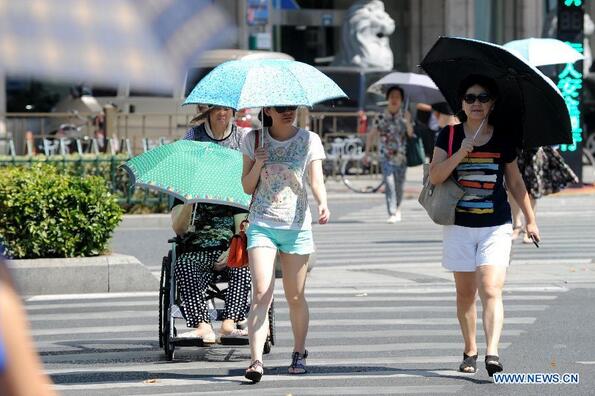Summer heat scorches S. China
china.org.cn / chinagate.cn by Wu Jin, July 29, 2016 Adjust font size:
 |
|
The heat will continue to affect regions in the southeastern, southwestern and several western parts of China. [Photo/Xinhua] |
Cities and provinces like Shanghai, Chongqing and Hubei Province have issued red alarms against the massive wave of the heat that has driven temperatures as high as 39 degrees Celsius.
The heat will continue to affect regions in the southeastern, southwestern and several western parts of China.
But the most affected regions, such as Hubei, Hunan and Zhejiang Province, will endure temperatures as high as 40 degrees Celsius.
The extraordinarily hot weather has affected more than 700 million people across the country in the past few days.
According to Weather China, the portal website of the China Meteorological Administration (CMA), the apparent temperatures in the middle and downstream areas along the Yangtze River have reportedly been as high as 50 degrees Celsius.
The land surface temperature keeps growing when short-wave radiation from the sun and downward flow under the control of subtropical high pressure work together, said Ma Xuekuan, the senior meteorological reporter at the National Meteorological Center of CMA.
The high temperatures will last until the end of July, so there is intensive demand for electric energy.
Capacities of electricity have kept breaking records in the provinces like Anhui, Jiangsu and Shandong. On June 25, the capacity of power grids in Hefei, Anhui Province, hit 5.53 million kilowatts, while in Jiangsu Province it was 92.39 million kilowatts.
Doctor Wang Junyu from the Beijing Chaoyang Hospital Affiliated to Capital Medical University suggested that people who suffer heat strokes should be moved into shade in open air and given water in time.
"But if they become unconscious and start convulsing, call emergency services immediately," the doctor said.